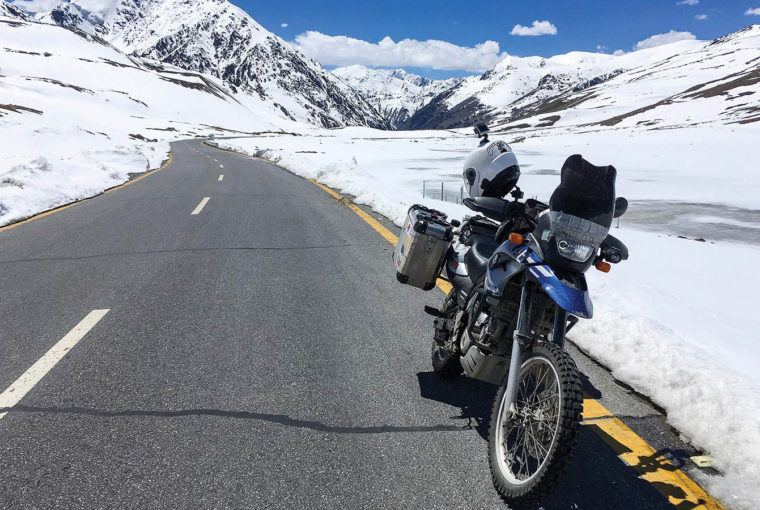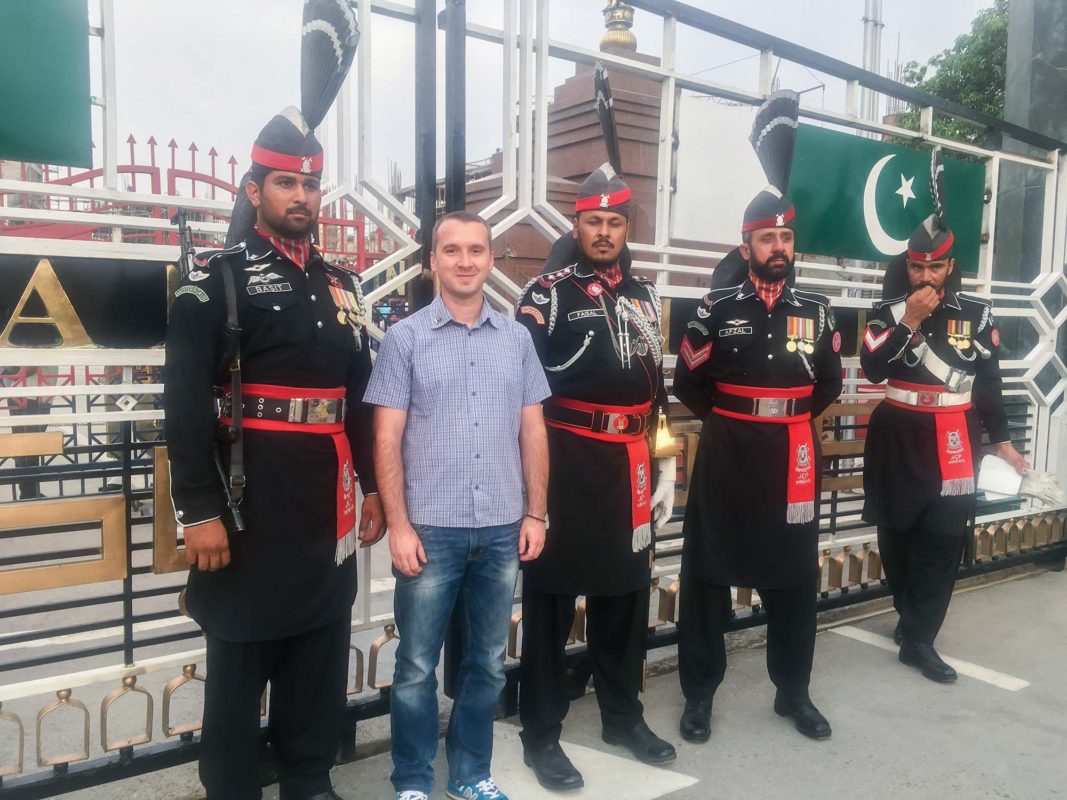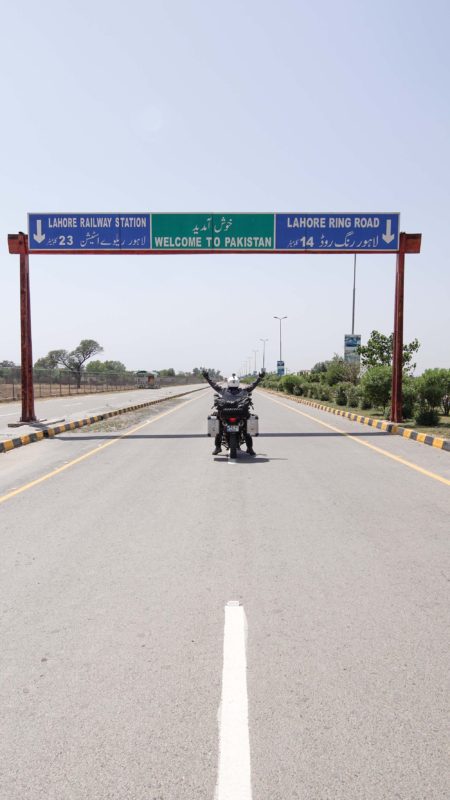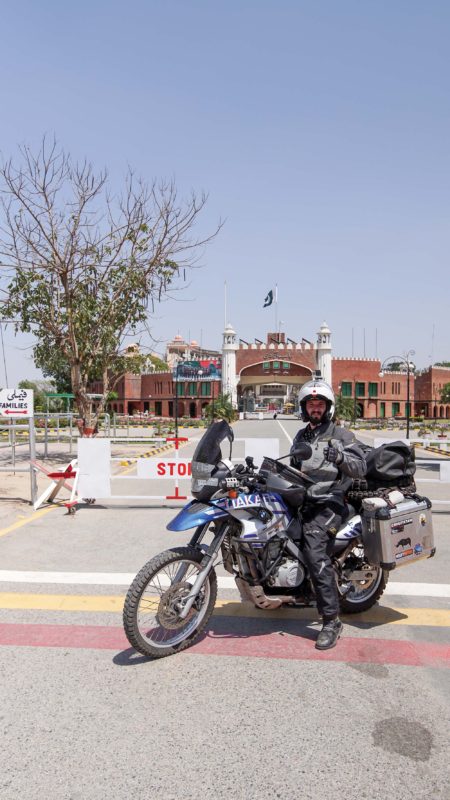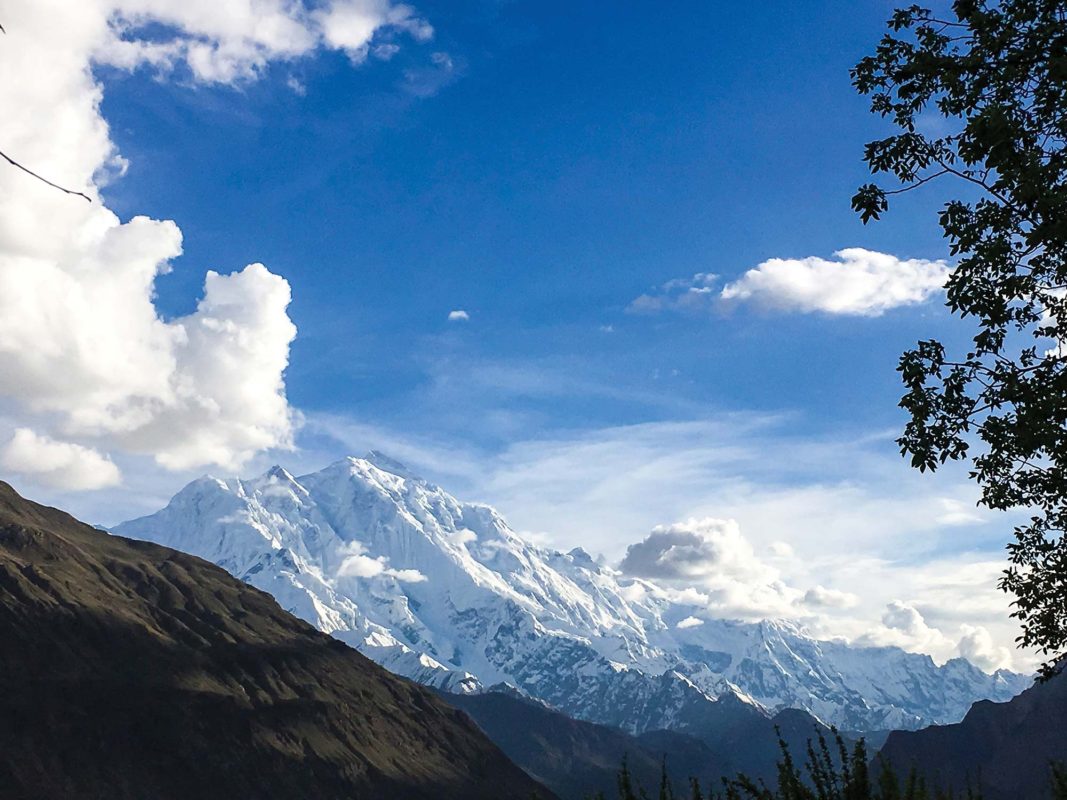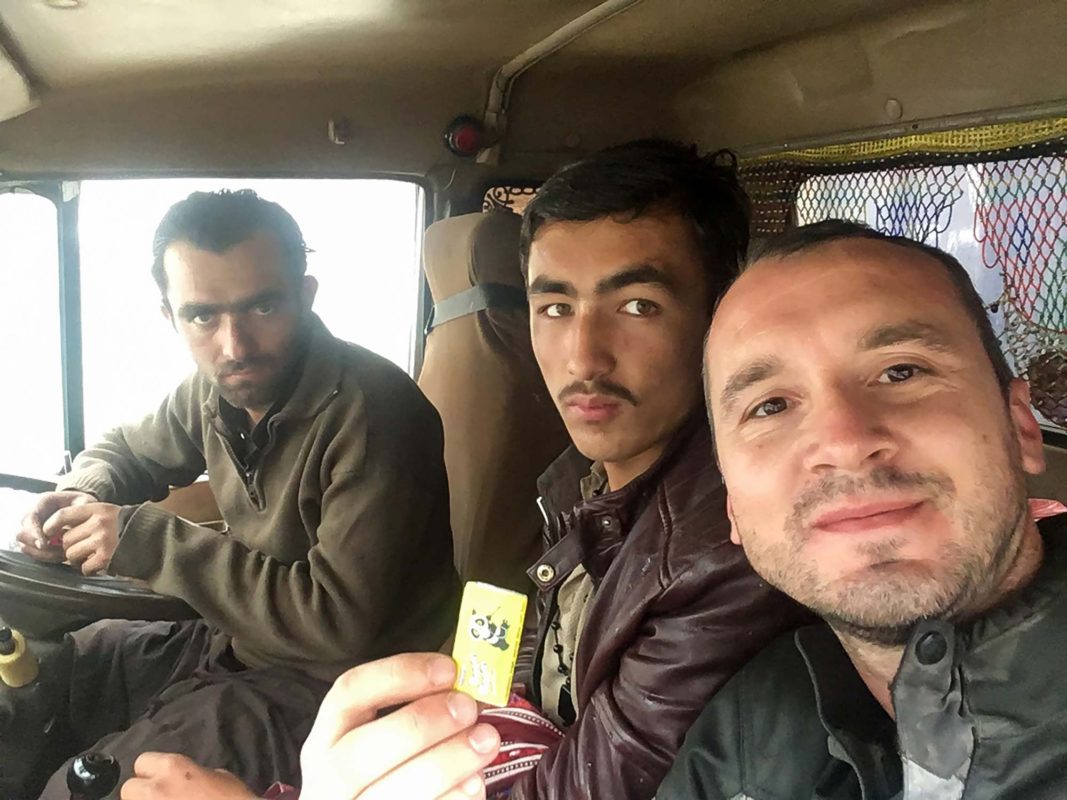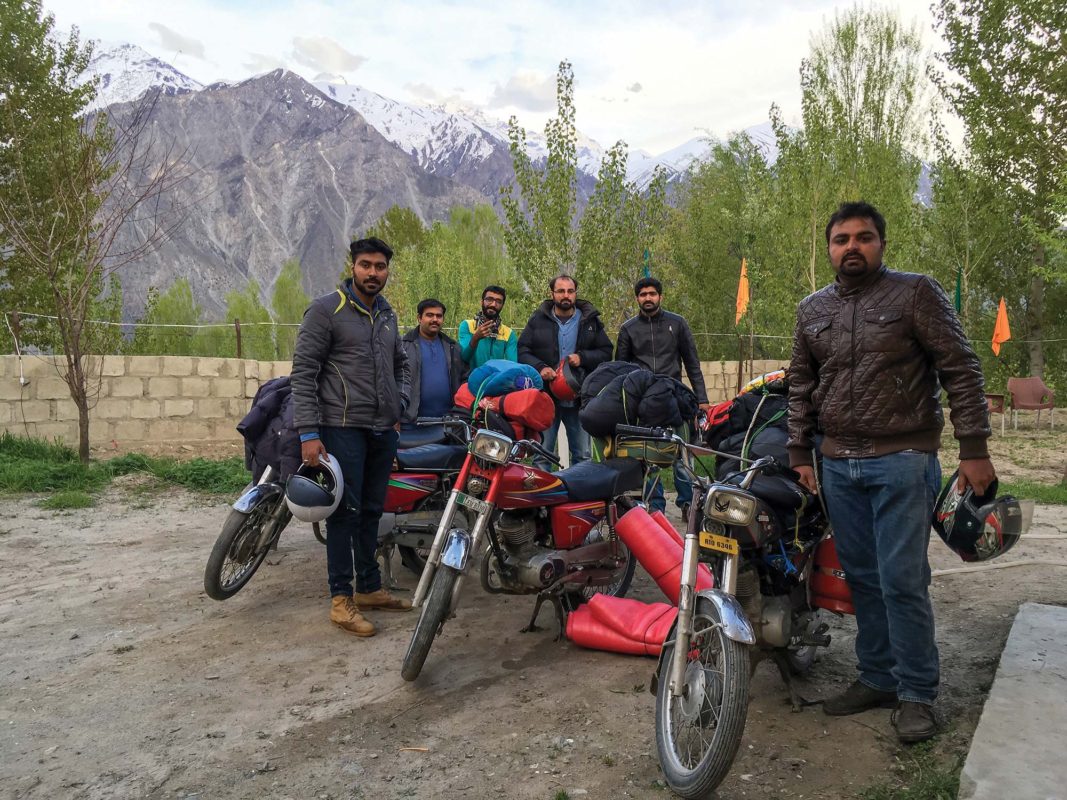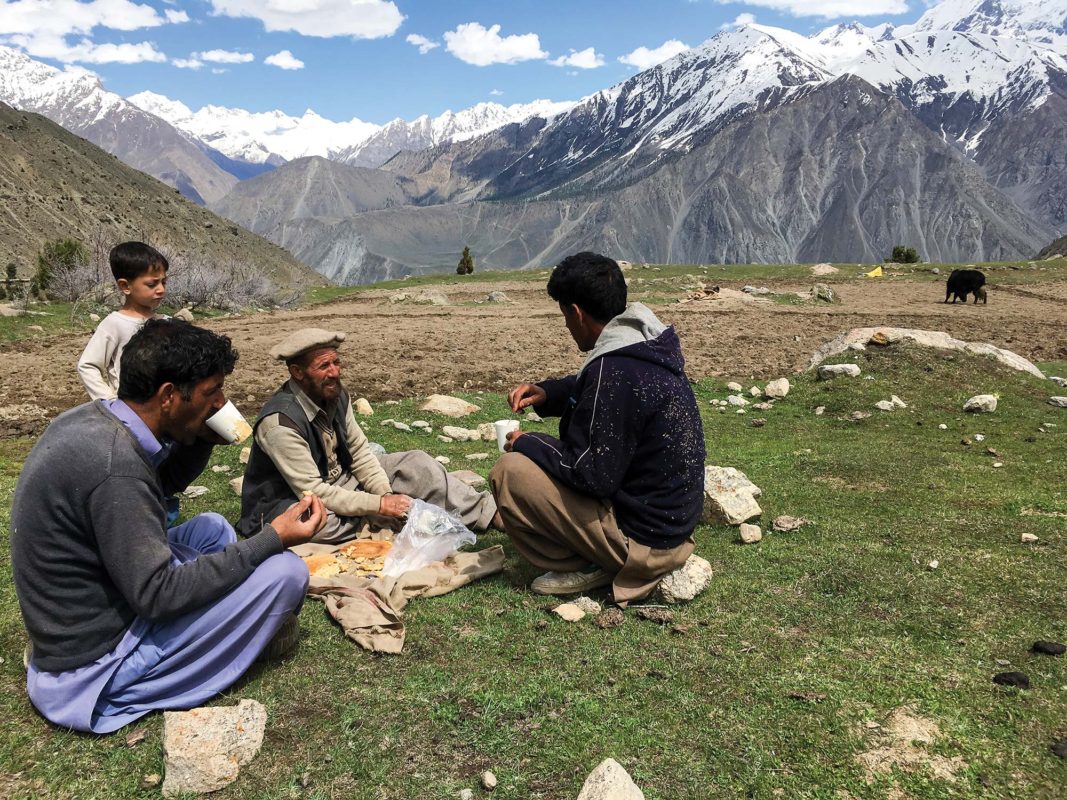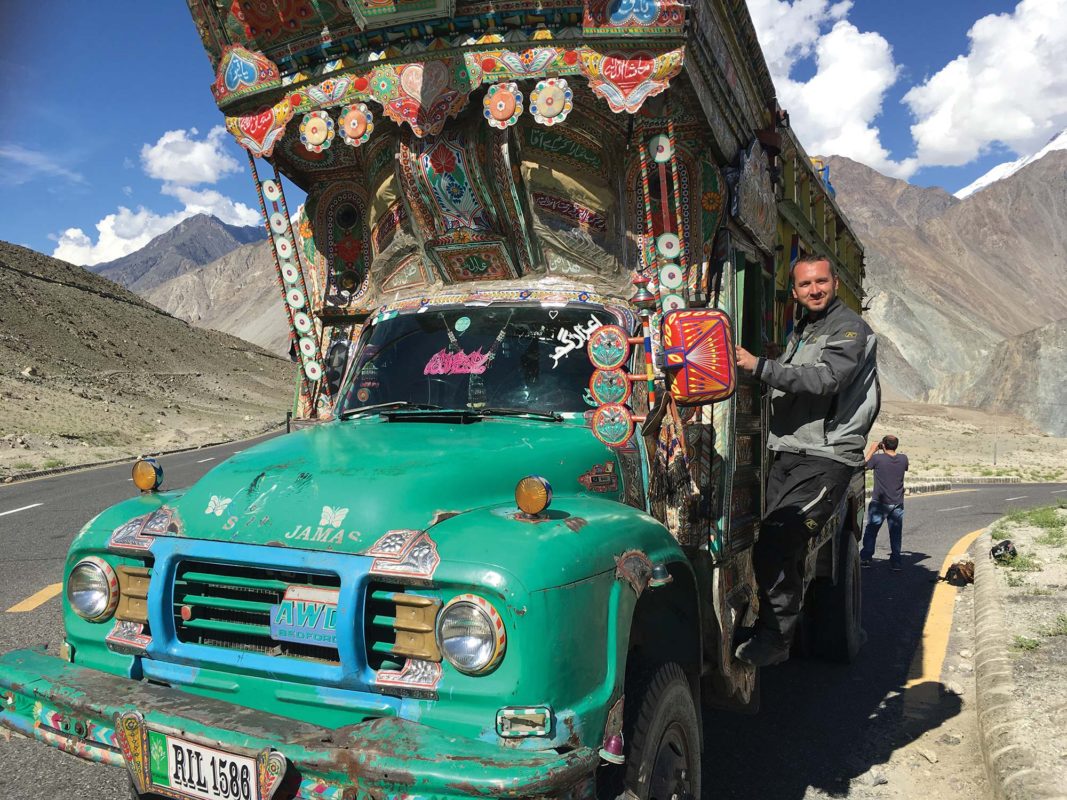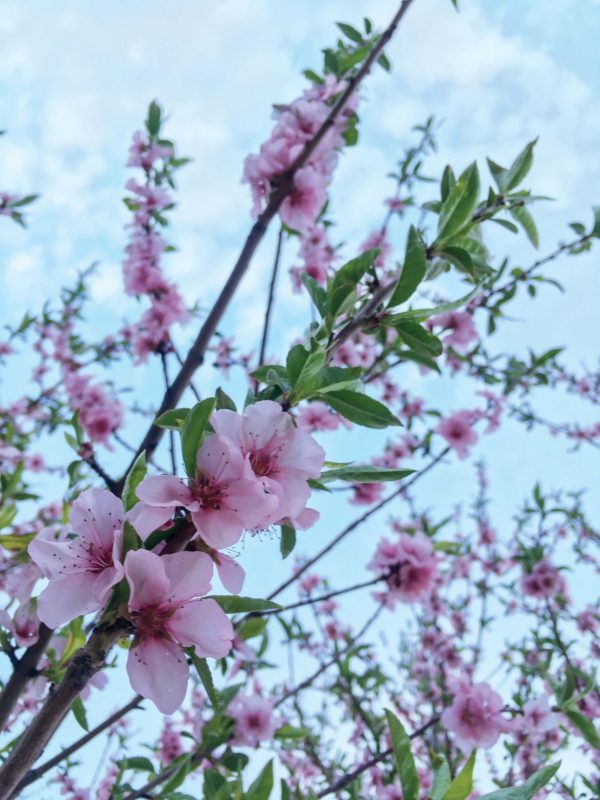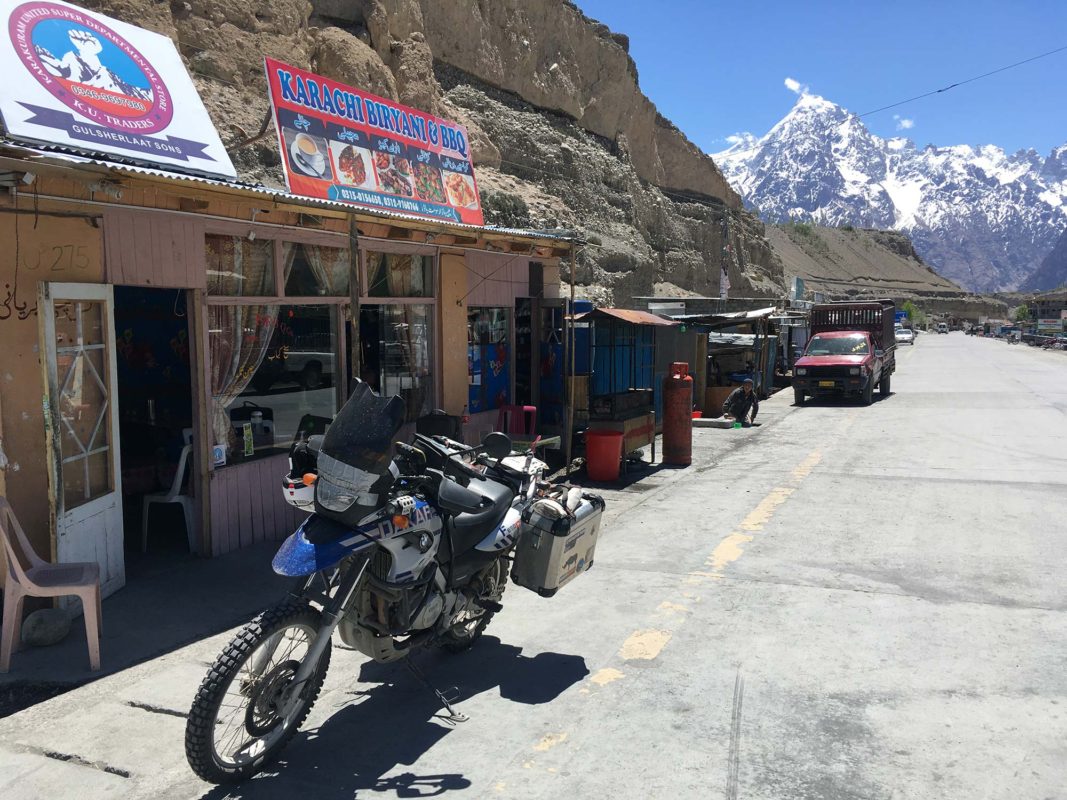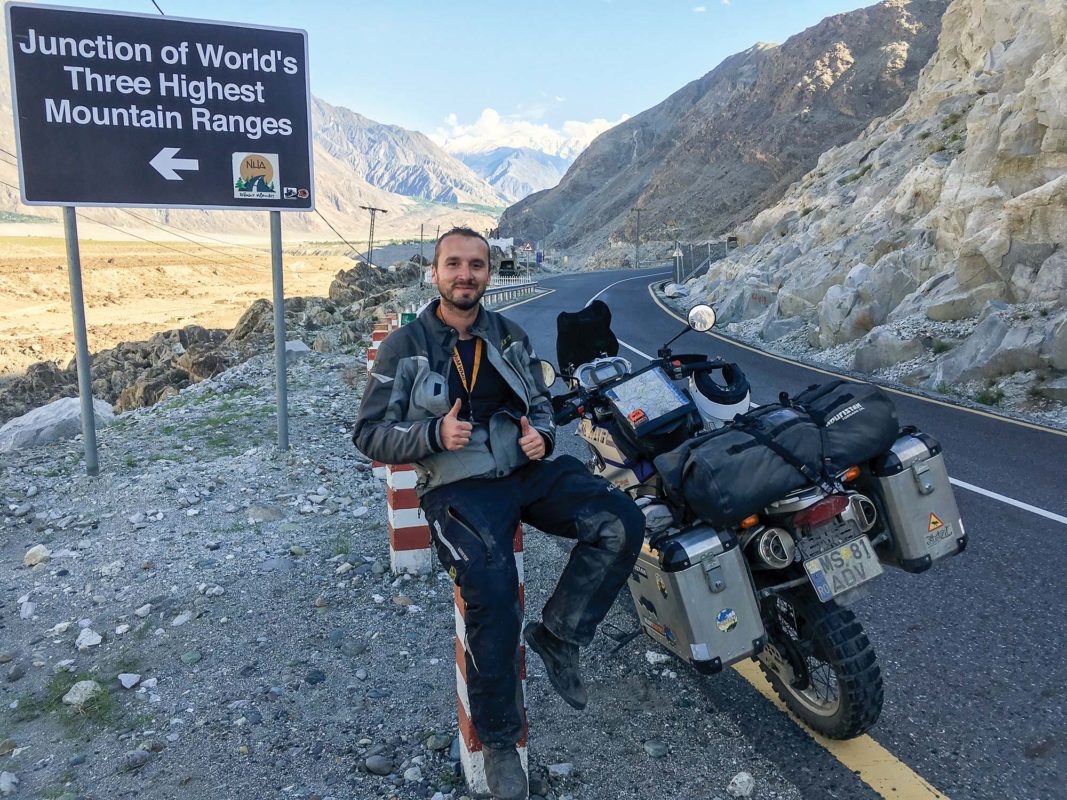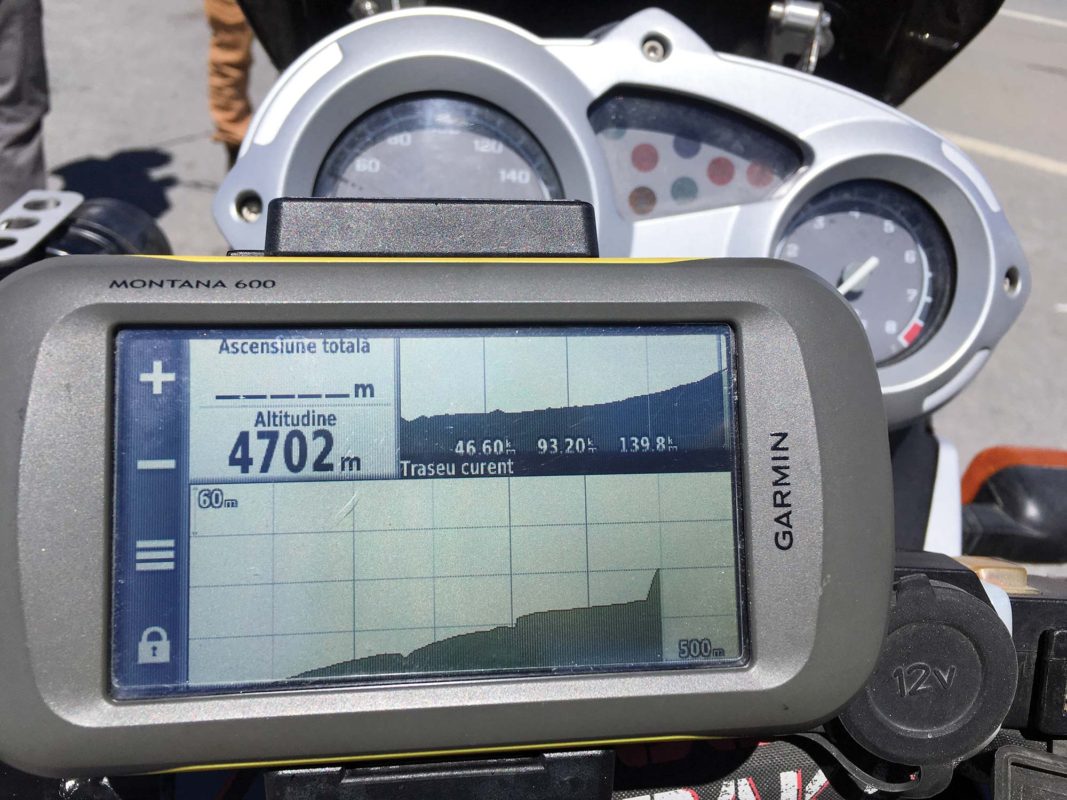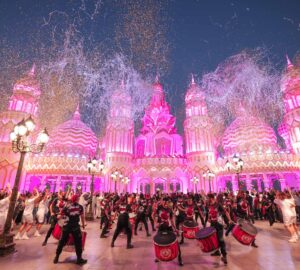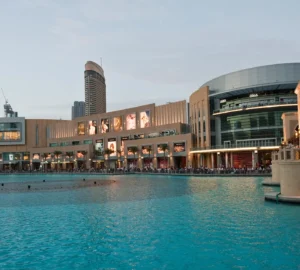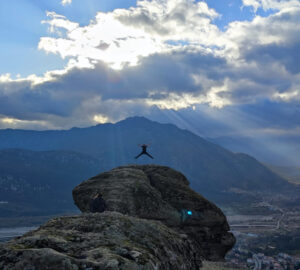For a guy who rides a BMW F650 GS and is on a transcontinental biking trip across Asia, Marius Boncutiu is a man of a few words and a surprisingly unassuming disposition. Having started the journey from his native land, Romania, last year in June, the Transylvanian drove through ten countries before hitting the Wagah border. This is the story he recounts from Pakistan; a tale of unparalleled scenic beauty and the warm hospitality he encountered as he rode through the Karakoram Highway, one of the highest paved road in the world, to see mythical lakes, fabled mountainous valleys and the confluence of three of the world’s greatest mountain ranges.
This is Marius Boncutiu’s Pakistan story, and it’s incredible. It’s a story that must be told in its entirety. And it must be told as it happened. A few weeks ago, I was added to a WhatsApp group by Vivek C., my brother’s Indian friend who happened to meet a Romanian biker, one Marius Boncutiu, on a fine day while he was biking through South India. During their half hour meet, Marius told Vivek and some other biking friends that he would ideally like to bike through Pakistan too. The Indian bikers encouraged him, calling Pakistan a country that was “frightfully beautiful” but warned him that getting a Pakistan visa for a non-Indian from India would be next to impossible. It was thus that Vivek reached out to my brother whom he has known since college for about twenty-five years now, over WhatsApp and added Marius too. My brother lives in Seattle and I have never met Vivek! Since I am editor at this publication which is geared mainly towards travel, I was brought into the fold and asked if I could help this Romanian friend of Vivek’s who is on a biking tour across Asia and is currently riding through India. It would be great if I could help him acquire a Pakistan visa thus enabling him to visit the fabled lands up north and see the confluence of three of the world’s greatest mountain ranges- the Karakoram, the Himalayas and the Hindu Kush.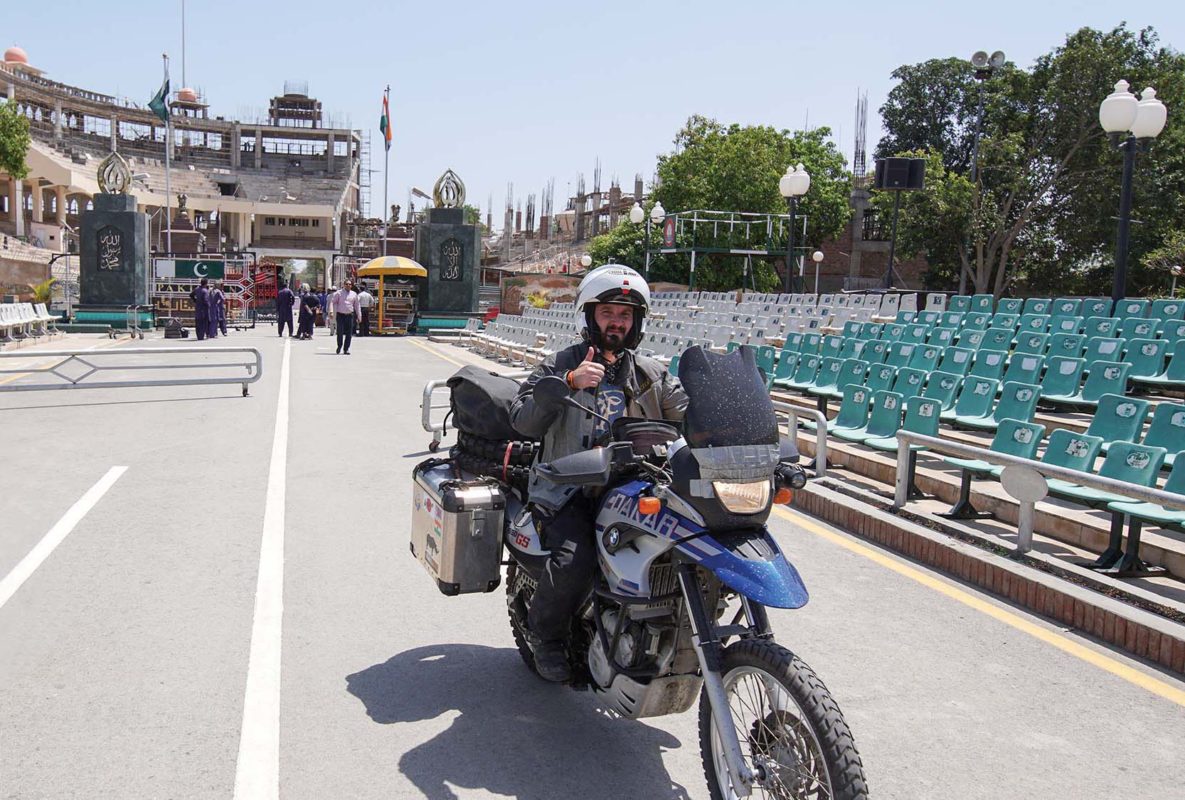
The problem was I knew no one, absolutely no one in the diplomatic circles. I put out a faint query on Facebook and received an equally weak response. My only hope was asking Moin Khan, an adventure biker from Pakistan whom I had met on two previous occasions for a feature. We added him to the group, and he, after trying countless other avenues, added another acquaintance, Hassan Raza, to the conversation. The interesting bit is, Hassan was someone Moin had met only once on a merry evening in the capital city; but as it turned out, he was someone with considerable contacts at ambassadorial levels.
Hassan asked his acquaintance, Pakistan’s ambassador to a third country, to intervene on Marius’ behalf. This said ambassador called up the High Commission in New Delhi and asked if there was any way Marius could secure a Pakistani visa through them. Marius was called in for an interview but, wait for this, on the day of the interview, a political catastrophe occurred that strained the already tense relations between the two neighbours and Marius’ visa request was, let’s just call it, collateral damage.
Surprisingly, this did nothing to deter Marius from hoping to visit Pakistan. Believe it or not, the eternal optimist flew to his home country to find this green ticket and returned to India two days later, a victorious man! Thus, on the morning of April 27, Marius crossed over the great divide from Atari, India into Lahore, Pakistan and our little group was full of cheers.
“I had this vague recollection of seeing the Wagah border ceremony on a black and white TV as a child back home. The guards raising their legs and then furiously stomping their feet. When I crossed over, and they opened the gates for me, I was completely overwhelmed.”
A petroleum engineer in his previous life, 36-year-old Marius has been on the road for almost a year now. Having left home in June 2016, he “went from Romania to Moldavia, Transnistria, Ukraine, Belarus, all of Russia, Mongolia, back to Russia, all the way to Vladivostok, crossed over to Japan, spent about three months in Japan, went to South Korea for a while, then off to Sri Lanka, India, and now here I am in Pakistan.” This is his second international biking trip (the first one being a purely European tour) and ours is the eleventh country he is visiting.
As someone who was taking almost 200 flights a year (If you do the math, that’s a flight every 1.5 days/2 days!) for five long years, he is no stranger to the art of travel. It is little wonder then that Marius’ passport boasts of entry and exit stamps from an impressive list of 120 different countries around the world. However, those work trips were planned with surgical precision and there was no concept of exploring a place at his own leisure or “going left instead of right. So the whole point of this trip is to be absolutely free to change my schedule, change my route and to spend as much time as I want in any given place.”
Marius had already completed his Pakistan leg of the journey before I met him and sat with him to get the complete lowdown. How does one just get up and go? And go how, where? Would it be safe? What about the economics of it all? How was Pakistan? Did we treat him well? These were questions that were burning a hole in my brain. Occupational hazard!
Before he embarked on his magna adventum and rode off into the sunset, Marius had to call it quits at work, putting an abrupt end to his career. “It was scary as hell to quit my job. It seemed like I was sacrificing pretty much everything. I made a rough budget and took everything I had, hoping that it would be enough.” Was it some intrinsic need for self-discovery that led to this grand adventure? “Travelling is something I absolutely love doing. You know this maxim, ‘Life’s too short. You gotta do it now, or you may never get the chance.’ It’s true. There comes a time when you can’t postpone your dreams anymore.”
His dream, it seemed, was, “I always wanted to do a real, proper tour. Explore the world. And when I decided to do it, the bike just seemed like the most convenient way to go.” But it’s another thing to dream and a completely separate ballgame to actually take the plunge. The chivalrous adventurer shares his secret. “There’s absolutely nothing special about me. I don’t have any superpowers. I am not stronger or brighter or anything so if I can do this, everyone else can too. The only question is, do you want it as much as I want it? That is what separates me from other people who only dream about this instead of actually doing it.”
The way he does it, there are no fixed rules and life happens as you go along. “I never pre-book any rooms or anything. I have my camping equipment so I just wing it. If I feel tired, I’ll stop earlier; if there’s still daylight and I’d like to go some more, I’ll go some more.” Really, it’s that simple? “Really! That’s how I do it,” he shrugs as if it’s no biggie.
“I don’t come into a country with a fixed agenda. I like to just leave myself in the hands of the local people. I ask questions like ‘What would you recommend me seeing in your country?’ because I think these people are the best tour guides possible. They’ll suggest and tell you about the road access to a certain place; if there are restrictions, if there are issues, if they think it’s worth seeing, or they would rather you go see some other place. That’s why I keep it flexible and tend to follow the recommendations of people I randomly meet on the street.” With a dedicated Sat Nav on the bike and hard copies of printed maps of places he is at, Marius whimsically weaves his way across the globe.
In a land with rivers, mountains, deserts, plains, the ocean, diverse ecology and much history, one wondered what exactly he was hoping to see in Pakistan. “I wanted to explore the northern areas as far as I could. A friend and I put together a rough plan for my trip to go up all the way up to the Deosai plains via Rama and Astore and then from Deosai to go up to Skardu, onwards to Khaplu and then return on the Karakoram Highway. But due to snow conditions, I couldn’t go further from Astore and had to turn back. Deosai was under 10 feet of snow even in May! So I had to change gears, change the scheduled route, turned back on to the KKH and turned right, drove up north to the Chinese border at Khunjerab Pass and came back to Karimabad, went to Gilgit, Skardu, Shigar, Khaplu and then back to Islamabad via Chilas.”
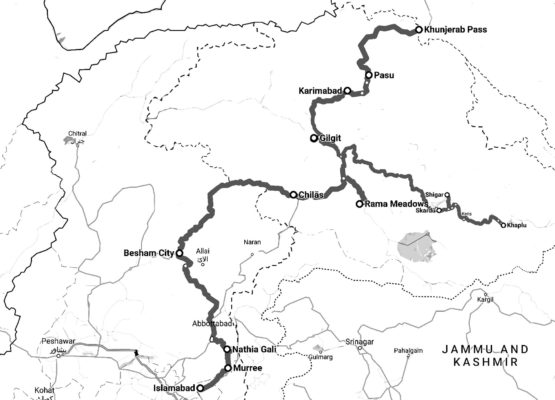
By the end, this was his itinerary:
For someone who has travelled across most of the world, it is certainly heartwarming to hear Marius’ impressions of the country. “I have no words to describe how amazing my Pakistan trip was! A combination of breathtaking sceneries and warm, welcoming people, it is most possibly the highlight of my trip so far. You have countless mountains over 7000m! Amazing valleys with raging rivers. Charming sceneries. Super friendly and hospitable people. I don’t remember biking anywhere that would even come close to the sort of breathtaking views I’ve seen up north in Pakistan. Housing, accommodation, food, shelter, gas, all is widely available and accessible. I rode there on my own for nearly two weeks during which time I didn’t miss anyone and I didn’t call anyone because I just didn’t feel the need to.”
“Every hour I spent in Northern Pakistan was a story in itself. Every person I met was a story, every place I have been to, I have stories to tell from there.”
Tell me some people stories, I egged him on. “I was going up from Dasu, after Besham, and there was a massive landslide. We got stuck for about 8-9 hours. Within 5 minutes of being stopped, it started to pour. I had zero cover. I was trying to stay upright with the helmet on so I didn’t get water behind my neck and through my jacket, hoping this too shall pass. That is when I realized some guy behind me in the truck was waving frantically at me, asking me to get into their cabin and take some shelter. I said hello and with signs, photos and maps, tried to explain to them what I was doing. They were super excited for me and shared with me whatever they had – some biscuits and a gum. I think they even offered me a melon which I politely refused because I couldn’t carry a melon on a bike! Amazing people.”
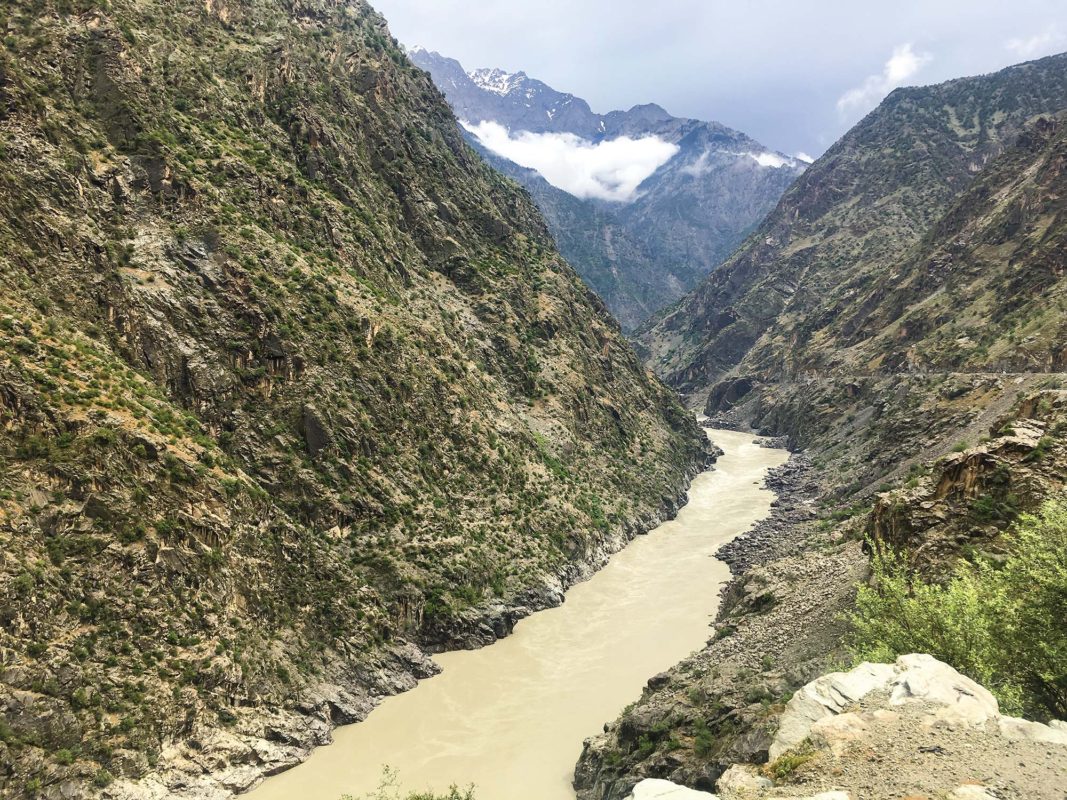
“That is also where I met a group of Lahore guys on small bikes, two guys on each bike with luggage and camping equipment and barbeque grills and rolled up mattresses. They were the funniest bunch with 150% enthusiasm and 1% knowledge. I loved them to bits. We pitched our tents side by side and camped on a volleyball field in Chilas. We cooked chicken karahi by the side of the road, which was my first meal in 48 hours. These guys had all the spices on them. I mean they had even brought along sheesha pipes! They had all these stuffed plastic bags and every time they hit a bump, their bags fell and I would stop, pick them up. At the end my bike looked like theirs, decorated in multi-coloured plastic until we parted ways.”
“Somewhere close to Rama Meadows, I stopped to see a friendly farmer ploughing his field. We shook hands and spoke in a bit of gymnastics. He and his folks were kind enough to offer me breakfast. They shared their food and their tea with me and it was super nice.”
The warmth and kindness of our people seemed to have won him over. “There’s hospitality and then there’s hospitality and then there’s Pakistan! Every single person I met up north became a friend in like 10 seconds. And this is absolutely true. I was in Skardu where I stopped at a random shop by the side of the road. I went in and picked up some snacks and drinks, but the guy did not charge me anything. He told me I was a guest and he would not take my money. The more I insisted, the more he refused.”
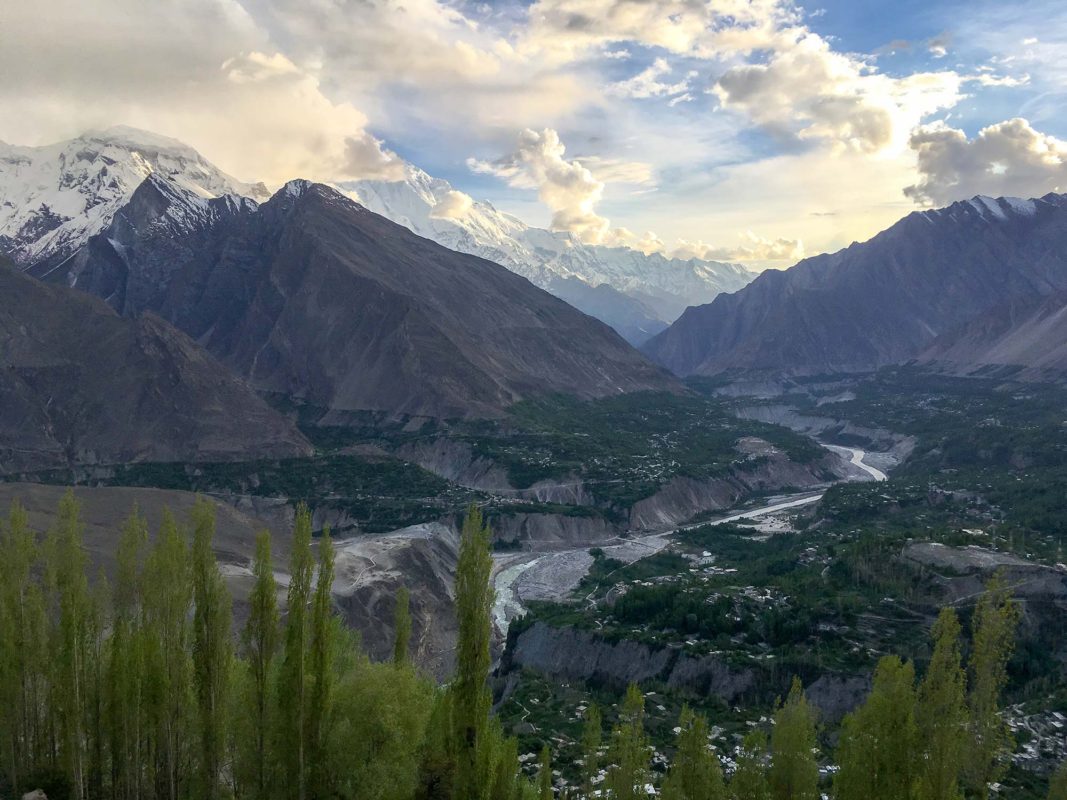
The further he drove up north, the more he loved it. “After going further on from Chilas, I didn’t even bother to lock my bike and I left my stuff in the tent, my laptop in care of strangers when I had to charge it. Nobody is stealing anything over there.”
“I think the people up north are living life in a totally different rhythm. The sort of things that are important for them to be happy are super different from what we think we need in order to be happy. The rhythm of our lives is so different from theirs that I think I would do well if I could end up with some of the simplicity and the honesty with which these people live their lives.”
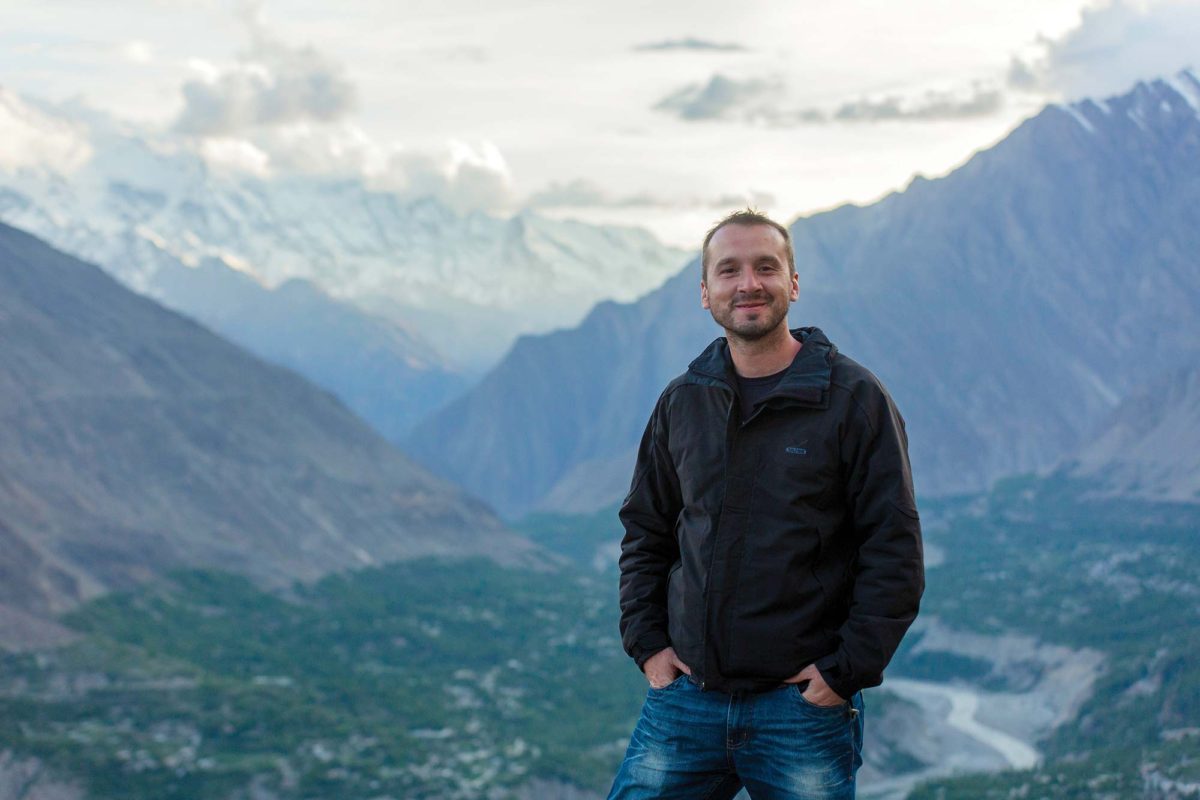
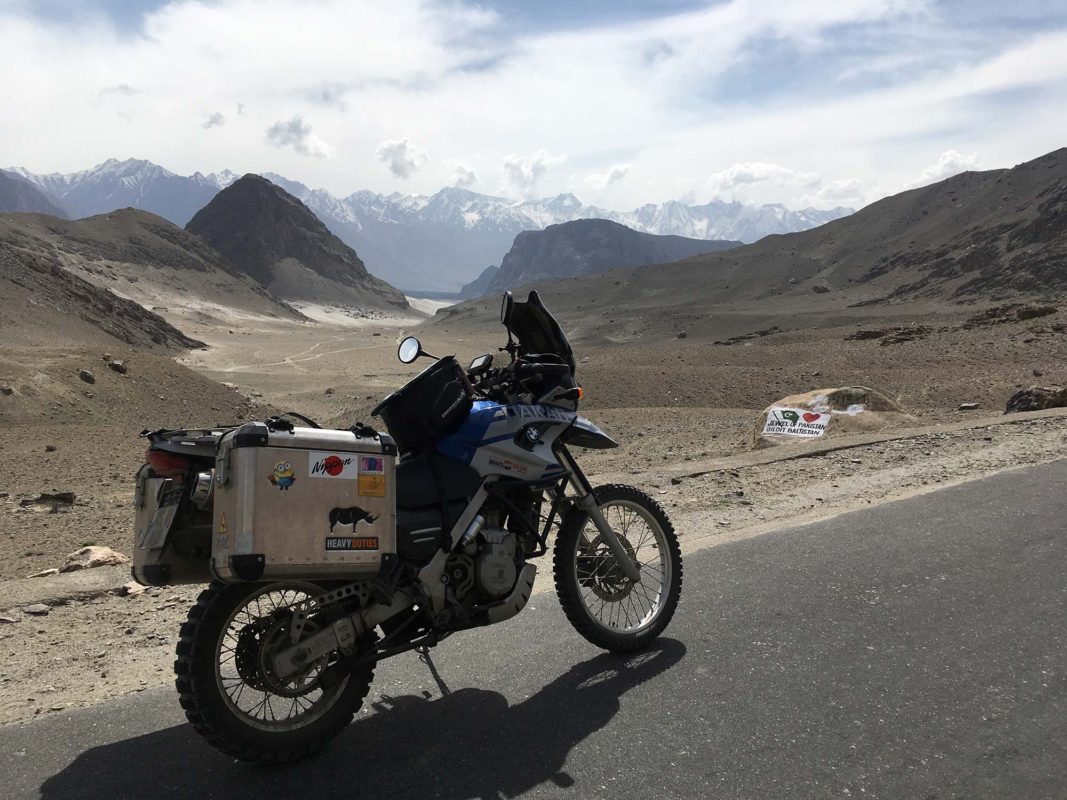
Having heard his people stories, I was now curious about the topography and road access. Although the road structure up north is far improved from what it was until a few years ago, with most of the routes being carpeted with excellent asphalt and tarmac, nature dictates all curves and bends. One can only imagine what an adrenaline rush some of these routes must be for an adventure biker, “I feel really proud for successfully completing the Gilgit-Skardu road stretch. I’ve recently found out it’s one of the world’s top ten most dangerous roads. There’s a lot of blind turns, and lots of traffic coming fast and only one lane to accommodate all the vehicles. It’s so narrow that two cars can’t go side by side. You have tall mountains on your left, a 2.5 meters wide road and then a massive drop into the valley on your right. There’s always the chance of landslides, and no road shoulders to ward off oncoming traffic.”
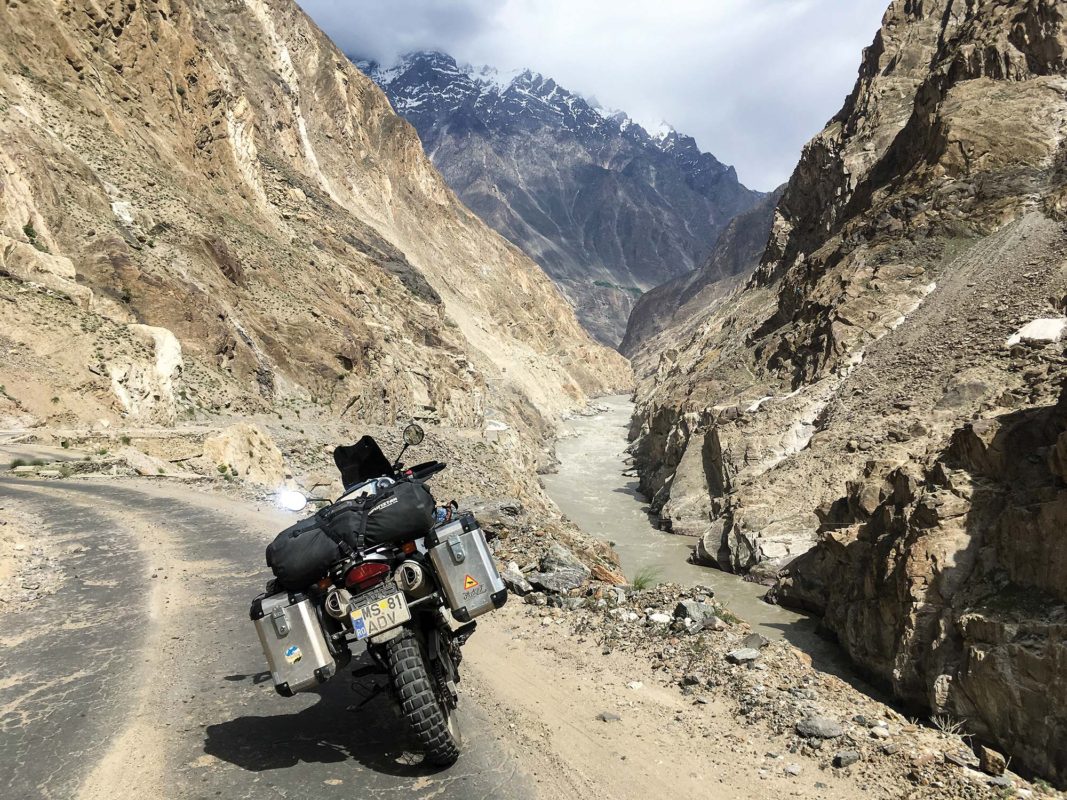
Naturally, I asked him what his favourite part of the trip was. “I think it has to be from Hunza Valley to Attabad and then Passu. When I got to the Attabad Lake, it was more beautiful than I had imagined. I gave up on trying to take photos because the camera lens cannot do it justice. You have to come and see it with your own eyes. So I put my phone back in my pocket and just stood there to soak it all in.”
“In fact it was actually a picture of the Attabad Lake that started my whole fascination with the idea of coming to Pakistan. In reality, when you get to see it, it is twelve times better than what you see in photos. There is such a deep blue in that lake, it’s almost like somebody dumped paint in the water to make it look like that. And I think I was super lucky to have a clear day with blue skies and sunshine and it was awesome.”
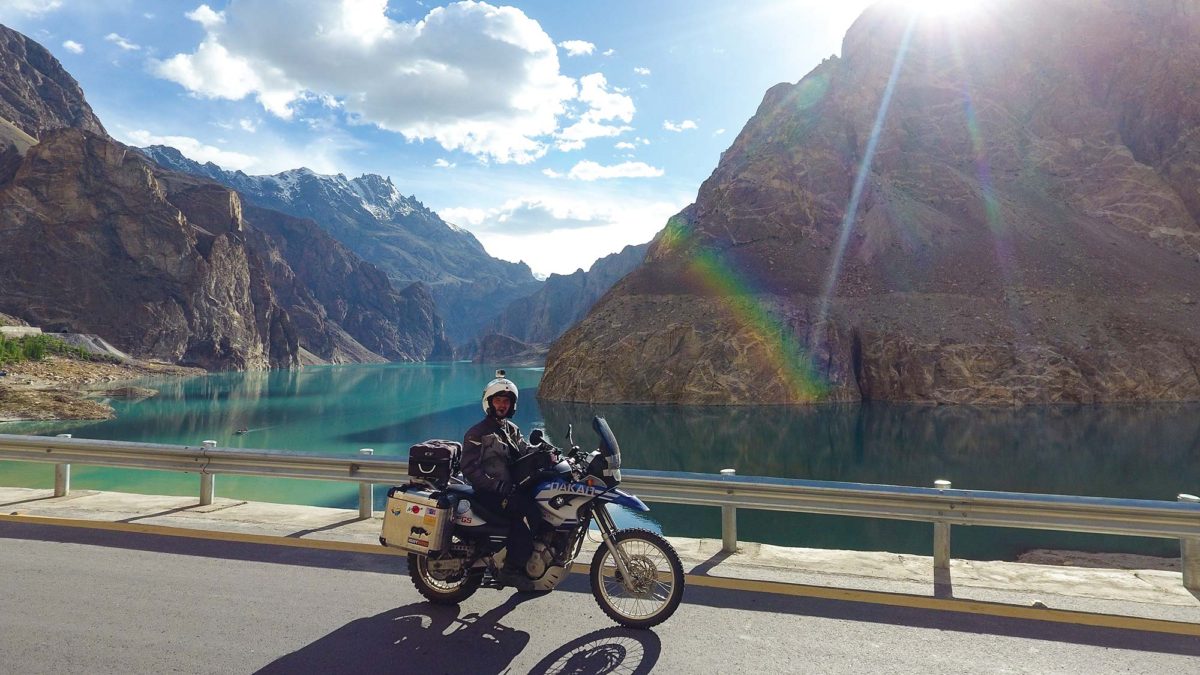
Was it easy to find accommodation at all these places, I asked him, a future vacation already taking shape in my head? “There’s so much hospitality here that you don’t need Airbnb. PTDC hotels are a good choice. They allow you to camp in their grounds if you bring a tent. So it is absolutely affordable. Most of them let you camp and use the facilities and the Wi-Fi. Some will not charge you anything, some will charge you something like US$7/8 a night to camp.”
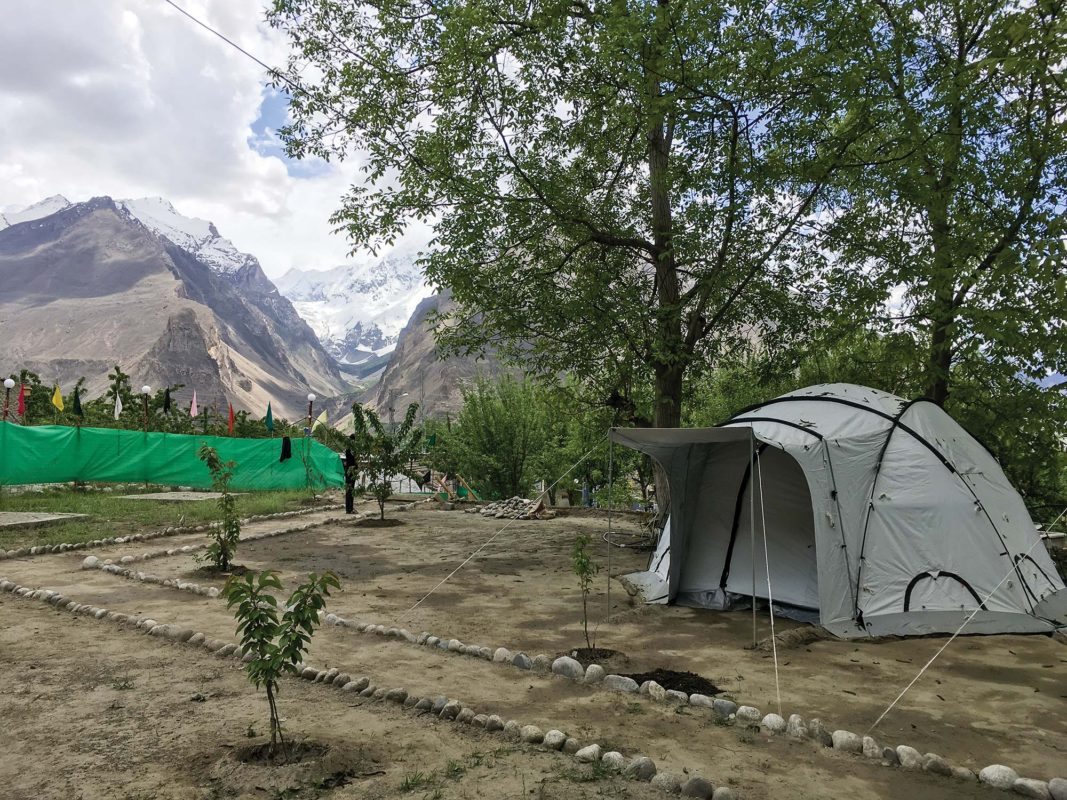
“All throughout Pakistan I’ve either been camping it or staying with friends. I’ve got invitations almost every single day from everybody I have come across, sometimes even complete strangers. All the people I met on the road in every place offered to pay for my food, for my drinks, invited me to their homes. It is truly a wonderful feeling. I am grateful that I was able to come here and experience it all.”
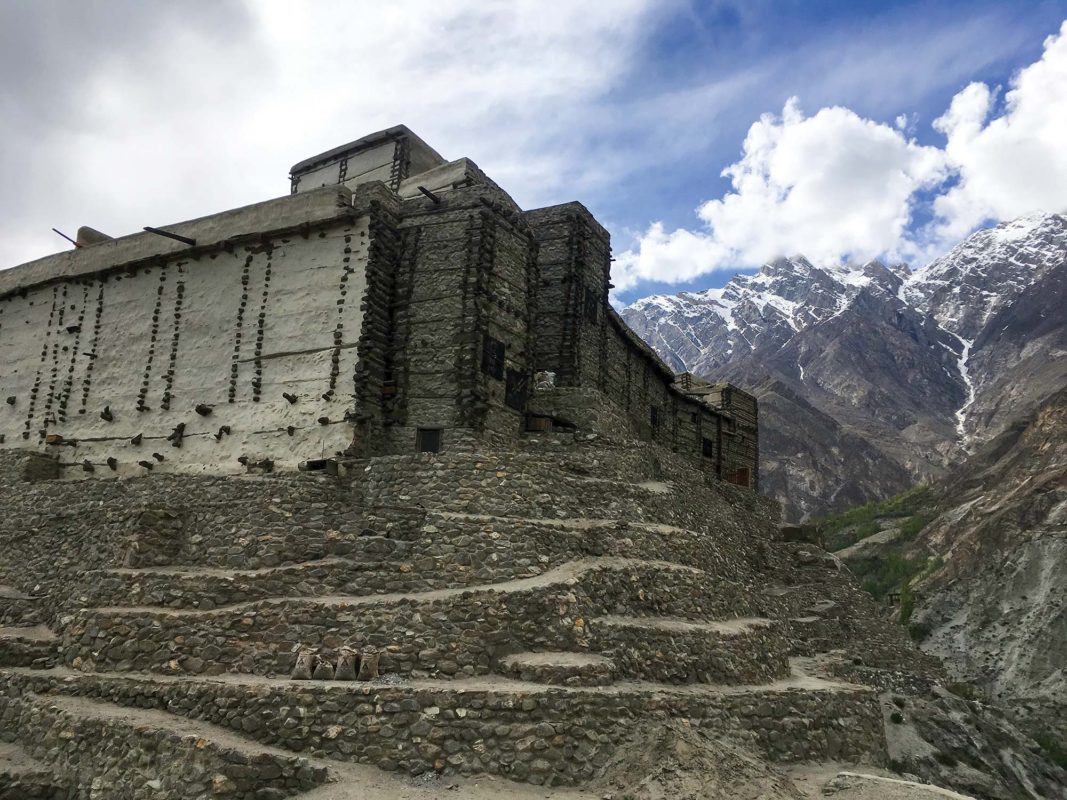
How in the world did he manage to make that happen? “That cliché ‘smile and the world will smile back’ is a universal truth. With all humans, regardless of their origin, a smile is all it takes to start a conversation. The world is a really cool place and if you had seen the things I’ve seen and met the people I met, you would have new faith in humankind. People are generally nice. If you come in with an open heart, and an open mind, people respond the same way.”
“I would say, you should not isolate yourself from people around you. And when you go somewhere, just let all shields down and talk to people, make new friends, be happy and you’ll never be alone. I’ve never been alone in Pakistan. Even though I biked alone, there was always somebody who could talk to me or share the ride for a small section of the journey. People kept in touch and met me again in different cities. The two brothers I met on the KKH invited me to their farm when I got back to Lahore. It is in a small village called Mir Mohammed, where I got to see the local festival and enjoy their music and watched them play a few games of kabbadi. The whole reason behind the trip is to actually get to meet new people from various countries.”
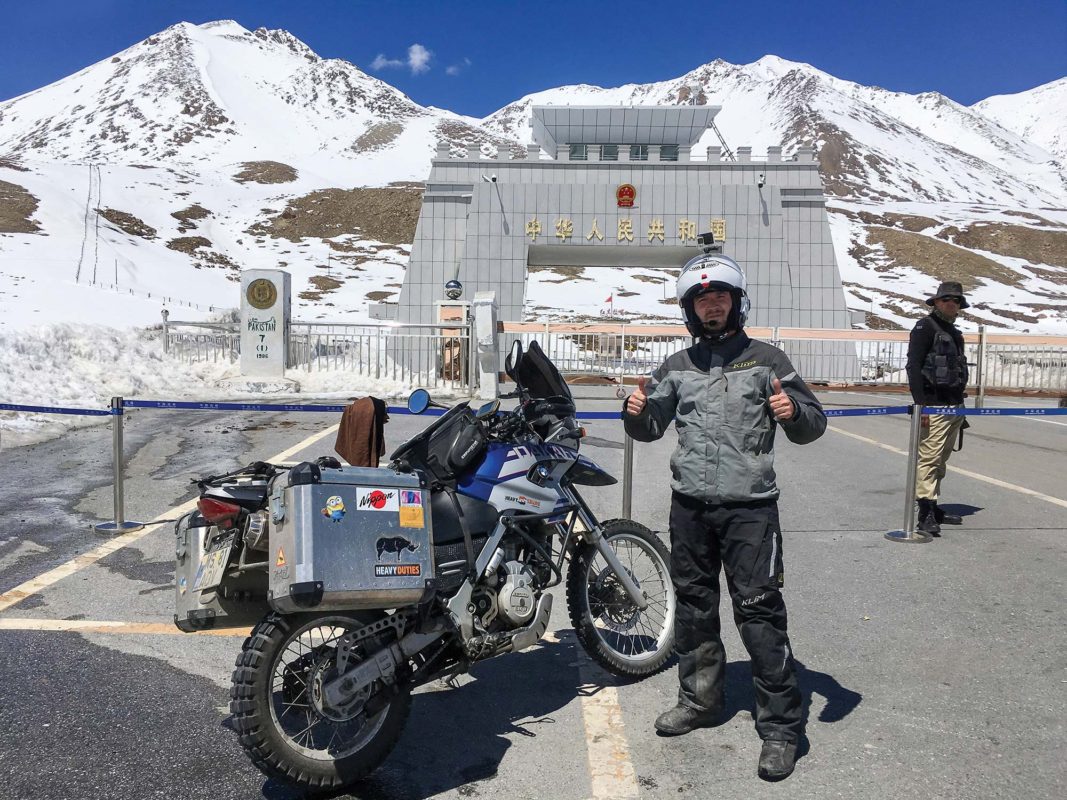
So what’s the plan now, I ask. “I am planning on going back to India to see a bit of their mountains, and then cross over into Nepal. The rough plan for now is that from Nepal, I will get to Kazakhstan and then I’ll tour all the Central Asian states – all the ‘stans. Kyrgyzstan, Tajikistan, Uzbekistan, Turkmenistan, Iran, Azerbaijan, Georgia, Armenia, Turkey, Bulgaria, Romania. Can’t promise if I get closer to Romania and I’ve still got some money in my account that I am not gonna do some sort of detour to the Balkan states.”
“But I plan to be in Romania before the first snowfall. Or until the money runs out. Whichever comes first. Once I go back home, I probably will have to start working again to make a living like everyone else. I would love to be able to do customized tourist packages for foreigners to properly explore Romania but at this stage, it’s just a dream.”
Before he exited the country, he messaged on our WhatsApp group inviting each one of us to his home saying, “you now have family in Romania, whatever is mine is yours.” It was a happy farewell. In many ways, meeting Marius was like personifying Lennon’s Imagine. May this dreamer continue to live out his dreams so the world could live as one. Safe travels, Marius! Wishing you well on your journey beyond Pakistan. Meanwhile, the WhatsApp group lives on.


